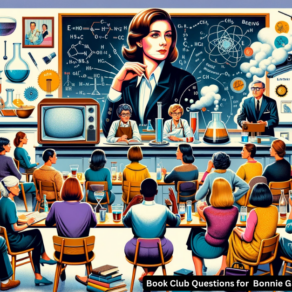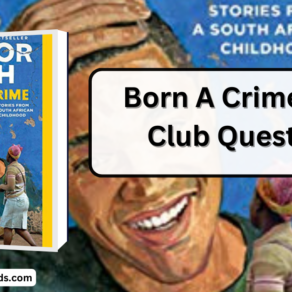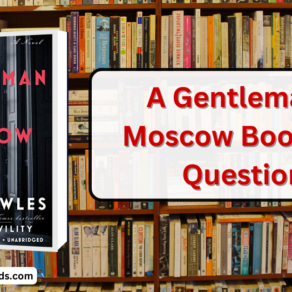The novel I selected for you for today’s book club questions post is the wonderful work by Amor Towles entitled The Lincoln Highway. This captivating historical fiction novel takes us on a journey across 1950s America, as we follow the intertwined lives of Emmett, Billy, Duchess, and Woolly. The book delves into themes of friendship, loyalty, the complexities of human nature, personal growth, and the pursuit of dreams.
As we explore the rich narrative and multi-layered storytelling, let’s consider these questions to stimulate thought-provoking conversations and insights into the characters, themes, and historical context of this compelling novel.
For an extended summary, check out The Lincoln Highway Summary post.
The Lincoln Highway Book Club Questions
Here are some thought-provoking questions for The Lincoln Highway:
1. Discuss the significance of the novel’s title, The Lincoln Highway. How does the physical journey along this historic route parallel the emotional and personal journeys of the characters?
2. The novel is set in 1954. How does the historical context of post-World War II America influence the characters’ lives, aspirations, and the overall atmosphere of the story?
3. The story is told from multiple points of view. How did this narrative technique impact your understanding of the characters and their motivations? Did you find any of the characters more relatable or sympathetic than others?
4. Examine the themes of friendship and loyalty in the novel. How do the relationships between Emmett, Billy, Duchess, and Woolly develop throughout the story? What role do trust and betrayal play in their dynamics?
5. Discuss the significance of the choices made by the characters, and the consequences that follow. How do these decisions shape the narrative and the individual characters’ arcs?
6. The Lincoln Highway explores the complexities of human nature. Which characters did you find morally ambiguous, and why? How do these complexities contribute to the novel’s overall themes?
7. Describe the importance of hope and dreams in the novel. How do the characters’ aspirations drive their actions and influence their decisions?
8. The novel can be classified as a coming-of-age story. How do the main characters, particularly Emmett, grow and change throughout the journey? What lessons do they learn about themselves and the world around them?
9. Compare and contrast the settings in the novel, from rural Nebraska to bustling New York City. How do these different environments impact the characters and their experiences?
10. The Lincoln Highway is a departure from Amor Towles’s previous works, such as A Gentleman in Moscow. If you have read his other novels, discuss the similarities and differences in terms of setting, plot, themes, and writing style.
11. How do the characters’ backgrounds and past experiences influence their actions and relationships with others? Consider the role of family, trauma, and personal history in shaping their perspectives.
12. Discuss the ending of the novel. Were you satisfied with the resolution of the characters’ storylines? What do you think the future holds for them?
13. How does The Lincoln Highway explore the concept of the American Dream? Are the characters’ dreams attainable, or are they hindered by societal and personal limitations?
14. What role does fate or chance play in the novel? Are the characters’ lives determined by their choices, or are they subject to larger forces outside their control?
15. If The Lincoln Highway were to be adapted into a film or television series, who would you cast as the main characters? What scenes or moments from the novel would you be most excited to see on screen?
Final thoughts
In conclusion, The Lincoln Highway by Amor Towles invites us into a richly woven tapestry of post-war America, where each thread is a character’s journey laden with hopes, dreams, and the pursuit of something greater. As we’ve navigated through the thematic crossroads of friendship, loyalty, and the innate quest for self-discovery, our book club’s discussions have illuminated the multifaceted nature of each protagonist and the era that shapes them.
These questions have not only deepened our understanding of Towles’s narrative craftsmanship but also stirred a reflective examination of our own paths and the highways we choose to travel. As we close this session, we carry with us the enduring spirit of Emmett, Billy, Duchess, and Woolly, and the timeless reminder that the routes we take, much like the historic Lincoln Highway, are filled with the potential for adventure, self-revelation, and the imprints of our collective humanity.







